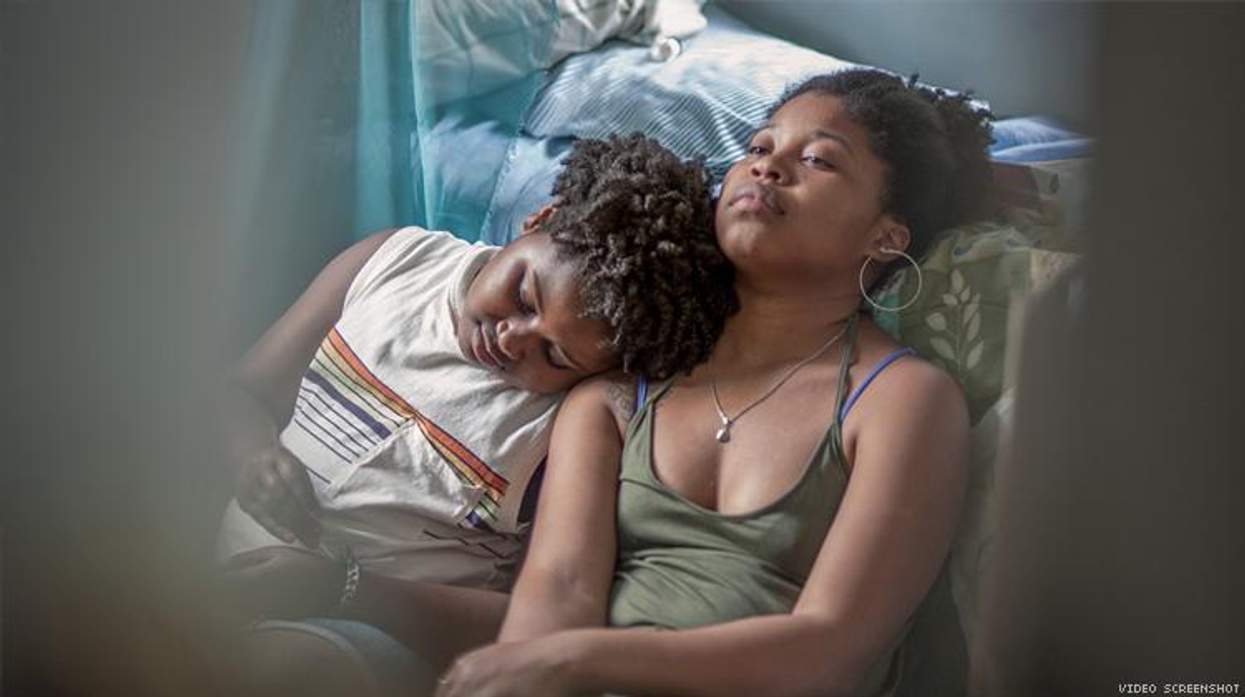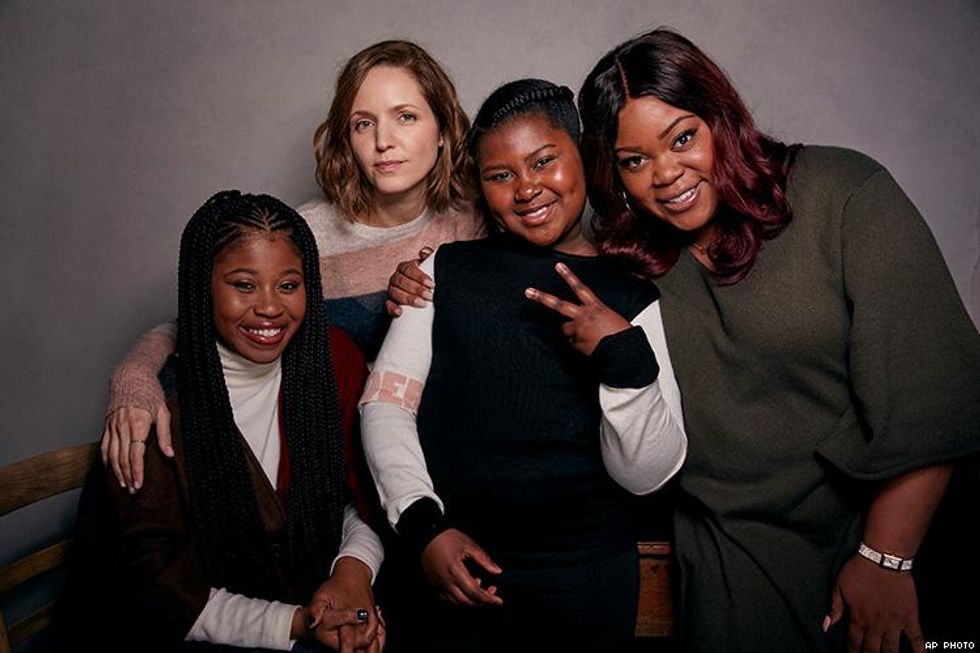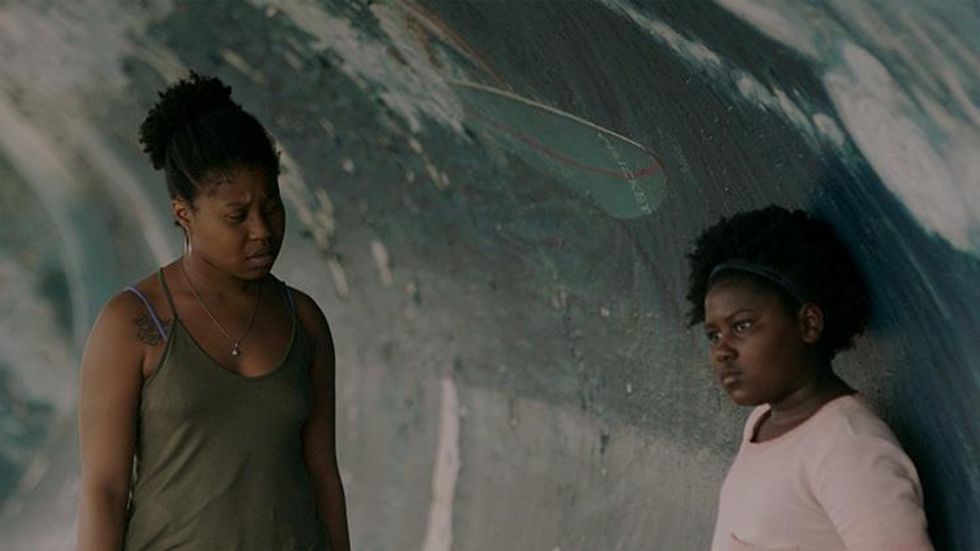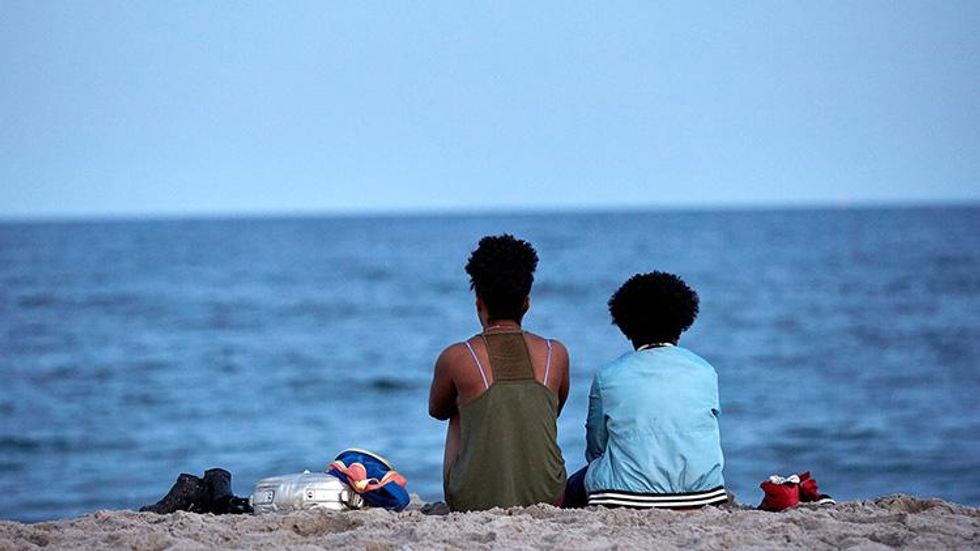Night Comes On is an intimate, piercingly powerful film that premiered at Sundance and earned the Next Innovator Award in January. The film centers on Angel LaMere (Dominique Fishback), a young queer woman surving trauma and navigating life after aging out of the foster care system. Starting with her release from juvenile detention on the eve of her 18th birthday, this film follows Angel with an emotionally incisive neorealist lens as she embarks on a journey with her 10 year-old sister (Tatum Marilyn Hall) to avenge her mother's death.
The Advocate spoke to director Jordana Spiro about her process of bringing this story of pain, strength, and vulnerability to the screen.
The Advocate: Congratulations on an immensely powerful film. What connected you with these characters and compelled you to tell this story? As a white woman, were you hesitant to take on a tale about a young black queer woman?
Jordana Spiro: Thank you. I was compelled to tell this story for many reasons. I've always loved a good existential crisis film, and I just didn't see women getting to carry films where their inner life, all that is difficult as well as beautiful, is examined. I had been volunteering within the foster youth community for many years, and I was in awe of the bravery required to face the incredible challenges that come with aging out of the system.
That the protagonist is black and queer felt instinctual to me for several reasons, primarily because the community I worked with was predominantly black and there were several queer-identified youth there who I got to know who struck me, so that is how I imagined Angel initially. Interestingly, during the casting process, we kept the ethnicity and gender (except those who identify as male) open, and we saw a wide range of possible Angels.
For me personally, I think it's my responsibility to follow the questions that compel me, but if those explorations take me into areas that are controversial or problematic, in this case, that this character is historically misrepresented and exploited and have their stories told by people who do not themselves know that perspective firsthand, that I do everything I can to understand that misrepresentation. For me, in this case, what that meant was doing all the research I possibly could, and most importantly, bring in collaborators such as [co-writer] Angelica Nwandu and [script consultant] Daniel Kitrosser who could guide me so that I was approaching the work with specificity and respect. For me, it wouldn't have been responsible to make this particular film any other way.
Can you describe the writing process with Angelica Nwandu? What did you share with each other?
The writing process was a mix of several methods -- we talked a lot, wrote together, and sometimes would write scenes solo and then trade the scenes and build off each other's writing. I learned so much from her especially in regard to, as she has said, the culture of foster youth. What it means to never be able to settle in, to have a binder with all your records precede you everywhere, to never be able to take a fundamental human right such as your physical safety (as a child no less) in your own home for granted.
Something I enjoyed sharing with Angelica was a kind of range of films and influences that I thought were valuable references for this film -- neorealist films, films with poetic lyricism and magical realism.
From left: Dominique Fishback, Jordana Spiro, Tatum Marilyn Hall, and Angelica Nwandu.
Angel's queerness is addressed in the first give minutes and never questioned by characters in the film -- how did you discuss portraying her sexuality in the script with Dominique Fishback, who embodied the role?
To be honest, we didn't discuss it much at all, as I recall. She is a very attentive person, does a lot of research, and I think my job as a director is to give her all the character info she needs if she is going astray or if she asks for it -- otherwise you run the risk of overloading an actor. I felt she had a strong grasp on the character's sexuality through what she was pulling from the script and her own private work on Angel's world.
Watch a clip from Night Comes On in which Angel attempts to connect with her ex-girlfriend.
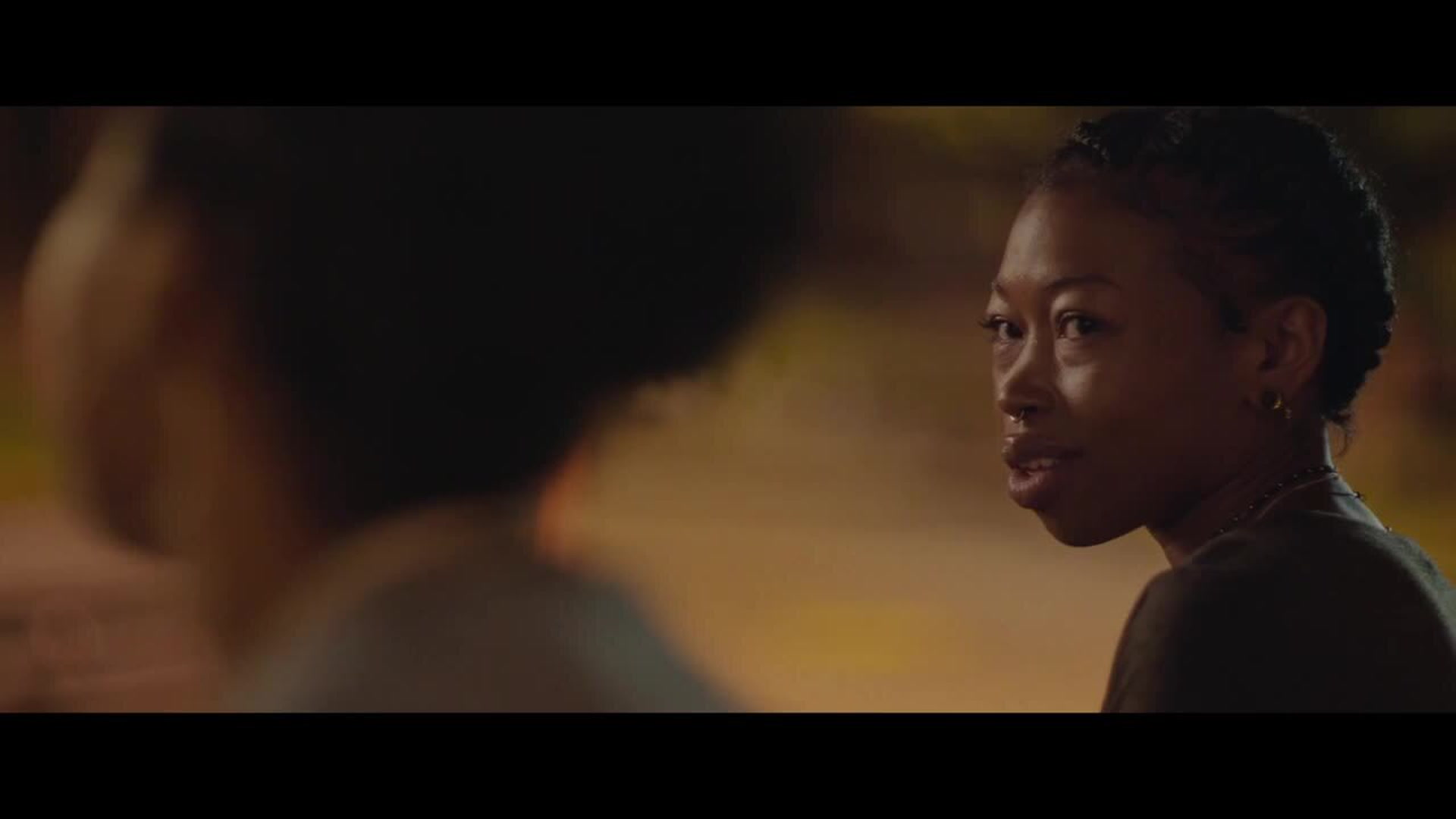
In the film, Angel trades sex with a man for a gun. Angel seems to use people's assumptions of her sexuality to step toward what she needs. How do you think she reconciles or navigates her queer identity within these dire circumstances?
The fact that she is trading sex for this gun was, for me, a way to describe the degree to which she has, in her past, had to cut herself off from her body. It's an indication of how she had to shut her own feelings down as a coping mechanism for survival. The consequence is that she believes that her sister would be better off without her father, even though that means it would be without her as well -- because she has convinced herself of her own insignificance -- as has been told and shown to her throughout her adolescence. Of course she is deeply mistaken and needs her sister's help to see herself through a different lens.
I thought the editing was exquisite and the waves of tension were very gripping. How did you work to build that rhythm of suspense?
Thank you so much. My editor, Taylor Levy, and I worked with a very fine-tooth comb -- we wanted every moment to matter because we were dealing with so much of an interior experience. It was a matter of playing and playing to understand how much room and where we had to release tension before needing to build it up again.
I had a directing teacher at Columbia, Eric Mendelsohn, who compared the orchestration of emotion in a film to stepping into a church. Before you step into the grandest area you generally have to walk through a tight corridor or dark vestibule of some sort. If you walk straight into the tallest, brightest room, but you've just come in from the outside, then that room is compared to the sky, and so by that token, the grandest room is small by comparison. I've held on to that piece of advice. How do you bring an audience in tight, right before you release a climactic moment? In this way a climactic moment, for example, the spilling of a drink, doesn't have to be huge. It only has to be huge comparatively to what's come before.
People are calling this a revenge film, but I see it more as a forgiveness film. We can see the trauma Angel carries in her eyes, but we also see her kindness. What do you think Angel's journey offers to people living with trauma?
I think one of the most heartbreaking affects of trauma is the way in which the ramifications, which are not always rationally traceable to the traumatic event itself, are felt with shame and aloneness. If a person can watch this and feel that they are not alone, that the repercussions are in fact elusive and can be terrorizing, perhaps at least the shame part can be attended to. We live in such an individualistic culture here in the United States. You are rewarded for pushing through something all by yourself, and that if you need to reach for help you are somehow weaker. I think the strongest thing a person can do is ask for and receive help.
LGBT viewers often call for queer storylines where coming out or struggling with sexuality is not the main story arc. This film offers just that. Her queerness seems to be the least of her worries! How do you hope that the success of your film might influence future stories?
I hope we can change the current landscape so that the white straight cis male protagonist is not the default setting for a universal story, where everything outside of that is somehow a niche story.
I wanted the feelings of this film to be universal -- we all want to be safe, to be treated with respect, to have a purpose. The more stories that show that we can relate to the emotions of a person, no matter how different their makeup is from one's own, the more we can deepen our capacity for empathy. The more someone can see someone like themselves on-screen in resonant ways, the more they are reminded that they matter. There is just no reason why I can't watch a scene of two people, for example struggling to make their love work, regardless of who they are, and not be able to project my own experiences of love onto the scene and be emotionally invested with them. It's the superpower of film.
Statistics show that LGBT youth are disproportionately more likely to be homeless and that queer youth of color are especially vulnerable. What is your message for queer youth in the foster care system?
Well, I would say that you are the strongest among us. Most of us that live with any form of privilege would crumble at the daily obstacles and anger thrown at your feet. To be honest, I feel silly giving you some message when it should be the other way around. All I can say is that I hope you don't make light of all you triumph over every single day -- it is a testament to your strength. And that if you are alone, try with all your might to find a community that sees how special you are, especially if you can't see it in yourself.
What do you hope to leave audiences with after watching Angel's story?
The importance of human connection.
